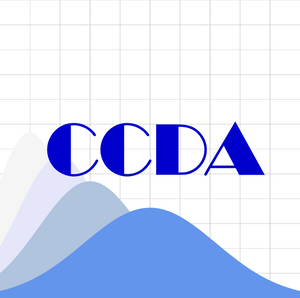United States Senate Elections in West Virginia and Missouri: Forecasting based on Computer Simulation
A research team led by Shiping Tang, professor at Fudan University in Shanghai, released its computer simulation-based predictions for the American upcoming senate elections that will be held on November 6, 2018. This is a purely scientific exercise. The team has no intention of influencing US elections by any means.
Due to budgetary and data constraints, their forecasting focuses on only two states: West Virginia and Missouri.
(1) According to the averaged result from our baseline models, Democrat candidate Joe Manchin is predicted to win 57.51% of the popular votes (high: 57.60%; low: 57.46%) whereas Republican candidate Patrick Morrisey is predicted to win 42.49% of the popular votes (high: 42.54%; low: 42.40%). The average predictive error as dictated by our baseline models is 3.34%, with its range being [3.30%; 3.49%].
(2) On October 6, Joe Manchin voted to support President Trump's second U.S. Supreme Court nominee, Brett Kavanaugh, to the U. S. Supreme Court in a 50-48 vote count. Our computer simulation-based forecasting approach provides a means for gauging the possible impact of a shock such as this. More concretely,
a) If democrat voters decide to (severely) punish Mr. Manchin whereas republican voters decide to not (strongly) reward Mr. Manchin, the vote share of Mr. Manchin will be adjusted to 53.01% (high: 53.51%; low: 52.51%).
b) In contrast, If democrat voters decide to not (severely) punish Mr. Manchin whereas republican voters decide to (strongly) reward Mr. Manchin, the vote share of Mr. Manchin will be adjusted to 55.01% (high: 55.51% ; low: 54.51%).
2. Missouri
According to the averaged result from our baseline models, Democrat candidate Claire McCaskill is predicted to win 47.85% of the popular votes (high: 48.31%; low: 47.54%), whereas Republican candidate Josh Hawley is predicted to win 52.15% of the votes (high: 52.46%; low: 51.69%). The average predictive error as dictated by our baseline models is 4.78%, with its range being [4.69%; 4.90%].
These predictions are the outcome of a yearlong project conducted by Tang’s team at Fudan University in Shanghai. Prof. Tang is the Fudan Distinguished Professor and Dr. Seaker Chan Chair Professor at the School of International Relations and Public Affairs. He also directs the Center for Complex Decision Analysis (CCDA). For more information on CCDA, check out their website: www.ccda.fudan.edu.cn
The method developed by Tang and his colleagues circumvents the need of relying on polling data. In other words, their whole forecasting exercise does not have any input from public opinion polls. Moreover, their method does not merely predict which candidate is going to win or lose, but their share of votes within a predictive interval dictated by their baseline models.
Over the years, Tang’s team has attempted to develop an agent-based modeling simulation platform that combines micro-level data about the voters and macro-level demographic, economic political and social data; data-driven methods and theory-driven methods; and forecasting and explanation.
More than two years ago, on Jan. 05, 2016 (Chinese version) and Jan. 10, 2016 (English version), Tang’s team released their forecasting of the election in Taiwan before the actual voting of that election. That forecasting was their first attempt of election forecasting with their new approach. For details, see:
Chinese Version: http://www.ccda.fudan.edu.cn/index.php?c=article&id=75
English Version:
(PDF version): https://china.ucsd.edu/_files/01112016_Taiwan-election.pdf;
(Html version):
https://chinafocus.ucsd.edu/2016/01/10/taiwan-election-results-predicted-in-computer-simulation/
Tang is optimistic that with further refinement and improvement, their approach may one day transform the field of election forecasting and electoral studies worldwide. His team is releasing its predictions to the public domain two days before the actual elections on November 6, 2018, providing the general public and the scholarly community with an opportunity to check the predictions against actual voting results.
Tang’s team will evaluate their forecasting results after the full election results are in and then provide more technical detail regarding their approach.
